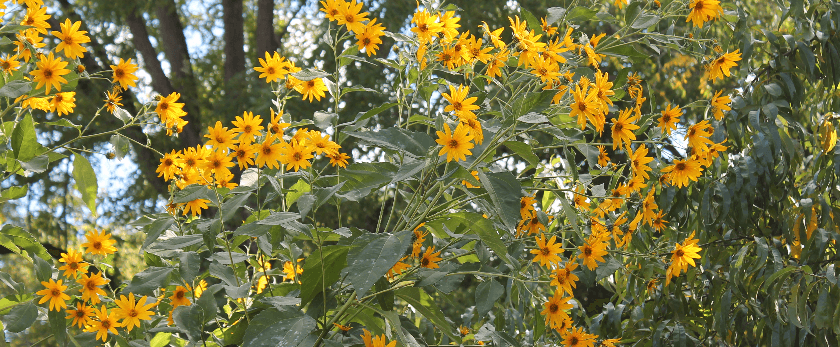Sunchokes, also known as Jerusalem artichokes, are a versatile and nutritious vegetable that can be easily grown in your own backyard. Not only are they delicious, but they also have a positive impact on the environment. In this article, we will discuss how to grow sunchokes and provide tips for caring for them, as well as the best time to grow them and common problems you may encounter. Let's get started!
How to Care for Sunchokes
Watering
Sunchokes are a hardy plant that can tolerate a wide range of watering conditions. However, they do best in well-drained soil that is kept consistently moist. It is important to water them regularly, especially during hot and dry periods. A good rule of thumb is to water deeply once a week, rather than lightly every day. This will encourage the roots to grow deeper and make the plant more resilient to drought.
Light
Sunchokes thrive in full sun, but they can also tolerate partial shade. If you are growing them in a container, make sure to place them in a spot that receives at least 6 hours of sunlight per day. If you are planting them in your garden, choose a location that gets plenty of sun and has well-drained soil.
Soil
Sunchokes prefer loose, well-drained soil with a pH level between 5.5 and 6.5. They can grow in a variety of soil types, but they do best in loamy soil that is rich in organic matter. Before planting, it is recommended to amend the soil with compost or well-rotted manure to provide the plant with essential nutrients.
Fertilizer
Sunchokes are not heavy feeders, so they do not require much fertilizer. However, if your soil is lacking in nutrients, you can apply a balanced fertilizer once or twice during the growing season. Avoid using high-nitrogen fertilizers, as this can cause the plant to produce more foliage than tubers.
Pruning
Sunchokes do not require much pruning, but it is important to remove any dead or damaged leaves to prevent the spread of disease. You can also prune the plant to control its size and shape, but be careful not to remove too much foliage as this can affect the plant's ability to produce tubers.

What is the Best Time to Grow Sunchokes?
Sunchokes are a cool-season crop that can be planted in early spring or late fall. They can tolerate light frosts, but it is best to wait until the soil has warmed up to at least 50°F before planting. In warmer climates, sunchokes can be grown year-round.
Common Problems with Sunchokes
Pests
Sunchokes are relatively pest-resistant, but they can still be affected by a few common pests. The most common pests that may attack sunchokes include aphids, slugs, and snails. To prevent these pests, keep your garden clean and free of debris, and use natural pest control methods such as handpicking or using organic insecticides.
Diseases
Sunchokes are also susceptible to a few diseases, including powdery mildew and rust. These diseases are caused by fungal infections and can be prevented by providing good air circulation and avoiding overhead watering. If your plants do become infected, remove and destroy the affected leaves to prevent the spread of the disease.
Invasive Growth
One of the biggest challenges with growing sunchokes is their invasive growth habit. Sunchokes spread through underground rhizomes, which can quickly take over your garden if left unchecked. To prevent this, it is recommended to grow sunchokes in containers or in a designated area of your garden with barriers to contain their growth.
Responsible Disposal Methods for a Sustainable Future
As mentioned earlier, sunchokes have a positive impact on the environment. They are a low-maintenance crop that requires minimal resources to grow, making them a sustainable choice for home gardeners. However, it is important to dispose of them responsibly to prevent them from becoming invasive in natural areas.
When harvesting sunchokes, make sure to remove all tubers from the ground. Any leftover tubers or pieces of rhizomes can sprout and grow into new plants, so it is important to dispose of them properly. You can either compost them or cook and eat them. Sunchokes are a delicious and nutritious addition to any meal, and by consuming them, you are preventing them from becoming invasive in the environment.
Conclusion
Growing sunchokes is a rewarding and sustainable gardening practice. By following the tips and guidelines outlined in this article, you can successfully grow sunchokes in your own backyard. Remember to care for them by providing adequate water, sunlight, and nutrients, and to dispose of them responsibly to prevent them from becoming invasive. With a little bit of effort, you can enjoy a bountiful harvest of this delicious and eco-friendly vegetable. Happy gardening!










